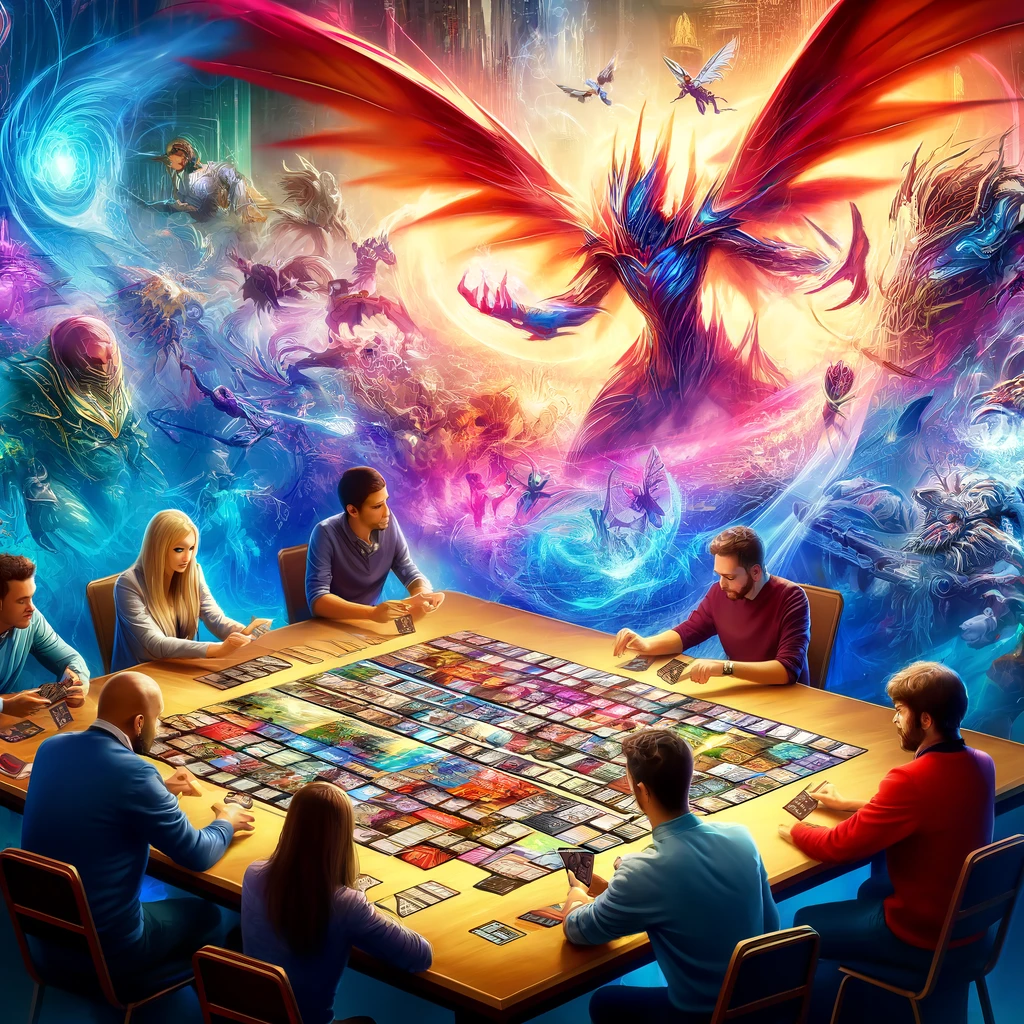Revolutionizing Card Play: The Genesis of Magic: The Gathering
Magic: The Gathering (MTG) debuted in 1993, forever altering the landscape of collectible card games. Created by mathematician Richard Garfield, MTG introduced a unique blend of strategic gameplay and collectible appeal. This game was the first to combine the complexity of traditional card games with a collectible structure, offering players both a game and a collector’s item. Its success paved the way for a new genre, inspiring a myriad of similar games. Additionally, the fantasy themes and intricate artwork of MTG cards captivated a broad audience, contributing to its widespread appeal. As players and collectors immersed themselves in the MTG universe, the game not only grew in popularity but also set standards for quality and engagement in the industry.
Expanding Horizons: MTG’s Cultural and Economic Influence
Furthermore, MTG’s impact transcends its gameplay, influencing cultural trends and the economic aspects of gaming. The game’s introduction of a secondary market where players can sell and trade cards was revolutionary. This market aspect added a financial strategy component to the game, engaging players beyond mere gameplay. MTG also fostered a vibrant community, with tournaments and meetups becoming commonplace worldwide. These gatherings not only strengthen the game’s community but also boost local economies by drawing participants from various regions. Moreover, MTG has inspired numerous digital adaptations, extending its reach and influence into the virtual gaming space.
Sustaining Legacy: MTG’s Ongoing Contributions
Magic: The Gathering continues to innovate, ensuring its place at the forefront of the collectible card game industry. With regular updates and expansions, MTG keeps the gameplay fresh and engaging for both new and veteran players. These expansions often introduce new mechanics and themes, keeping the community active and speculative about future developments. Furthermore, MTG’s commitment to diversity in its storytelling and artwork reflects its adaptation to contemporary cultural values. This enduring relevance not only maintains its fan base but also attracts new players, sustaining its significant role in shaping the collectible card game industry.
Conclusion: Magic: The Gathering Enduring Legacy
In conclusion, Magic: The Gathering has had a profound impact on the collectible card game industry, from introducing innovative gameplay mechanics to influencing cultural and economic dynamics. Its legacy of innovation and community engagement continues to inspire and shape the gaming world. As MTG evolves, it promises to remain a key player in the entertainment sector, continuing to offer both strategic depth and collectible value to generations of gamers.


